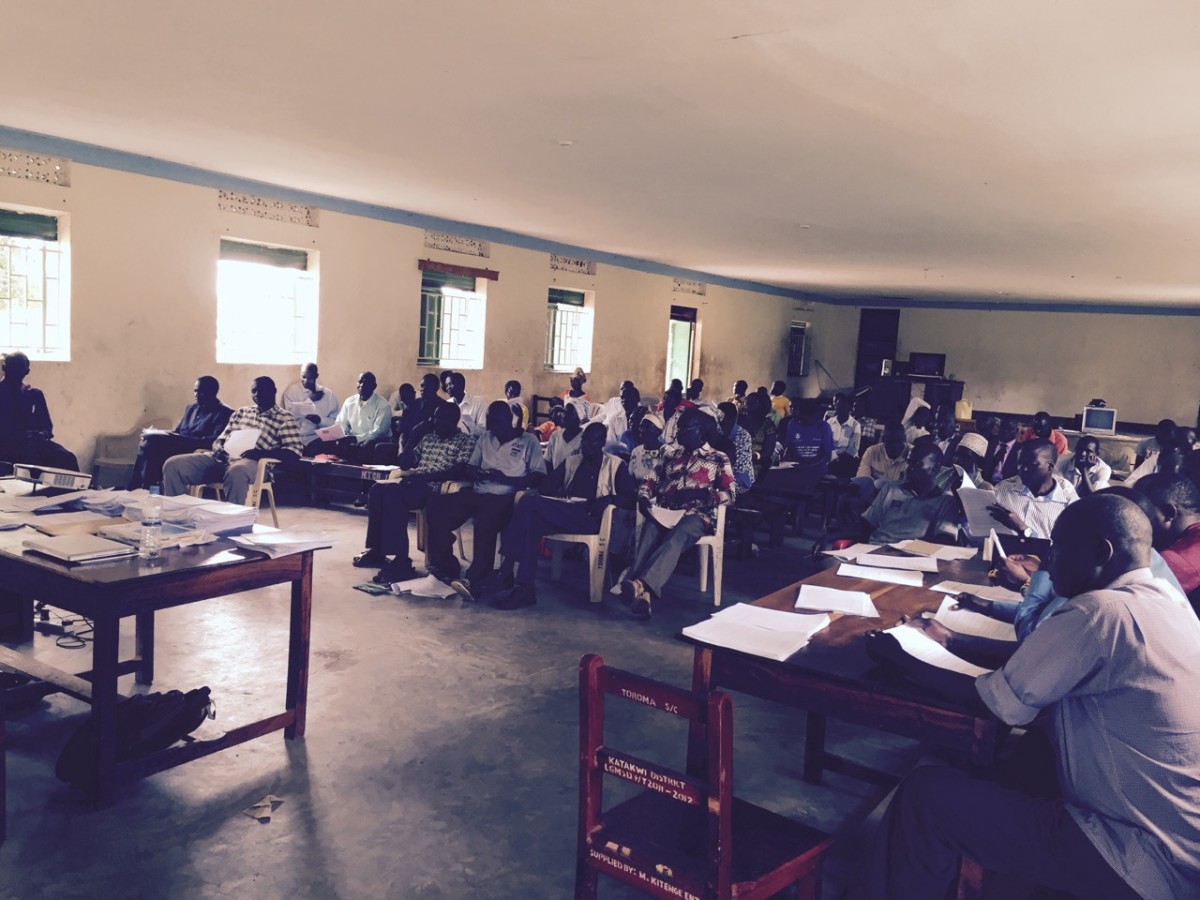Brian Dennison spoke at Urbana on “The Vocation of Law in God’s Global Mission to Bring Justice and Wholeness.” You can find a summary of his talk here. To introduce you to Brian and “share the blessing,” Brian offers some tips from his own experience teaching cross-culturally. Part 1. Note: Have experience teaching cross-culturally and want to write about it? Whatever your culture of origin and wherever you taught cross-culturally, we’d love to hear. Email us here.
And they took him and brought him to the Areopagus, saying, “May we know what this new teaching is that you are presenting? For you bring some strange things to our ears. We wish to know therefore what these things mean.” – Acts 17:19-20 ESV
Today opportunities to teach in other nations abound. Every year thousands of North American scholars take the plunge and bring their knowledge and teaching skills to a myriad of settings and contexts.
Personally I had the opportunity to serve on a law faculty in Uganda for seven years. It was an incredible experience and I got involved in some very meaningful work. However, there was definitely a learning curve. To explain I need to tell a quick story . . .
The first law class I taught in Uganda was Jurisprudence––a wide-ranging legal philosophy class with about 120 students. As the semester progressed things seemed to be going well. When I looked out to the faces in the class I felt as if they were “getting me.”
About half-way through the semester two students leaders appeared at my home unannounced. I was happy to see them. As they awkwardly struggled to accept my hospitality I realised something was up. One student cleared her throat and told me there was a problem with the class. Apparently very few of the students understood what was happening and many of the students could not understand me at all.
Uh oh . . . not good—not good at all.
Fortunately we managed to get on the same page over the remaining weeks and the class ended well. However, that would not have been the case if the students did not have the nerve to set me straight.
Most cross-cultural teaching assignments do not last for seven years. Some might only last a week or two. Many visiting scholars do not get the opportunity to learn from their mistakes and work out the kinks. So here are a few words of helpful tips from my own experiences:
- Realize that even in English-speaking settings a nasally, monotone American accent can make you very difficult to understand. So slow things down. Try not to speak though your nose too much. Speak with your mouth in a more sing song (up and down) way. Use power point to provide visuals of key words so that you are easier to understand. Have class representatives repeat key instructions to the class.
- Be aware of the content of your language. Avoid American figures of speech—especially ones that use baseball terminology. Much of the world does not understand baseball so phrases like “right off the bat” and “strike out” can sound very weird. Similarly do not presume that your pop culture is their pop culture. Do a bit of homework to find out what pop culture you can play off of in your cross cultural setting.
- Recalibrate your humor. In American we tend to rely heavily on sarcasm and irony. This type of humor is lost on many cultures. Sarcasm and comic irony can leave cross-cultural students confused and uncomfortable.
- Do not presume that body language is universal. Often we fail to appreciate how culturally specific body language and facial expressions can be. Do not assess the receptiveness of your class based on the expressions you see on your students’ faces. Instead make sure to take time to actually interface with student leaders in safe spaces where they can honestly tell you how things are going. (Note: Do not rely on written surveys!)
- Appreciate the contextually of your own political and economic convictions. Many of us have ideas about the right government models and approaches to problems. However, our ideas as to how things should be done might not translate well in other contexts.
These tips can help but they do not amount to a recipe for success. Teaching in cross-cultural contexts requires qualities more than techniques. Patience, humility, flexibility and genuine love for the students and the cultural setting are qualities that will make the most of your cross-cultural teaching experience.
Image courtesy of Brian Dennison.
Brian Dennison is the Manager of Faith Learning and Service at Uganda Christian University where he also serves as a Lecturer in the Faculty of Law and Coordinator of the Clinical Legal Education Program.
Brian holds a Bachelors Degree, a Masters in Business Administration and Juris Doctorate from the University of Georgia. Prior to joining Uganda Christian University, Brian practiced law in Savannah, Georgia. Brian is pursuing a PhD in Private Law from the University of Cape Town.
Brian, his wife Mary Jane and their four children have been in Uganda since 2008. They are missionaries with SAMS USA.


Leave a Reply